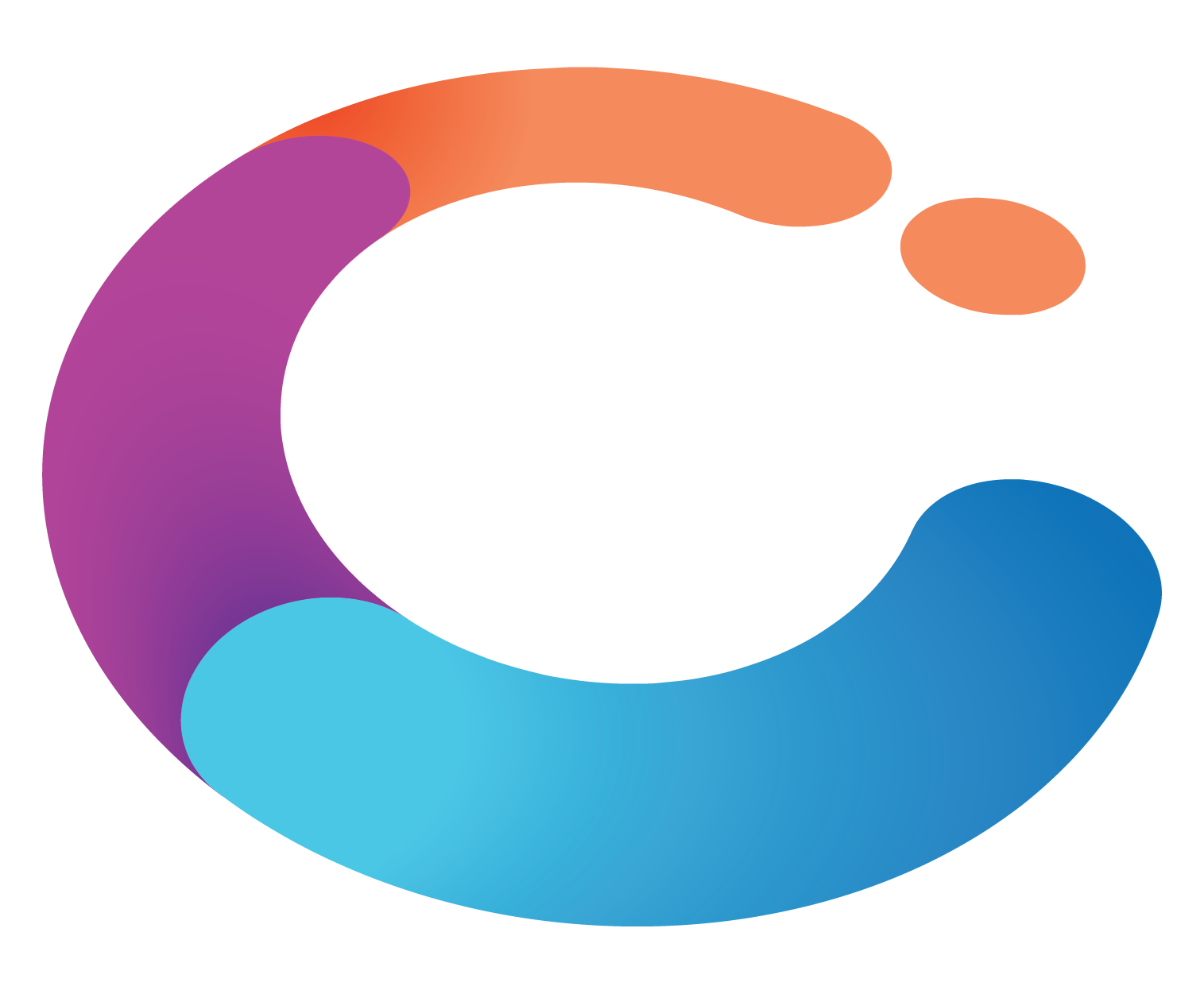Best Practices for Asking Great Interview Questions: Proven Strategies for HR Managers
The article delineates best practices for HR managers in formulating effective interview questions that evaluate both candidate qualifications and...
Engage
|
Hire
|
Develop
|
Assure
|
|
Deeply understand your organisation with science-backed analytics on your culture, team design, and engagement. |
Automatically match to candidates who are a great fit for your team culture and who are intrinsically motivated to succeed. |
Back your onboarding, compliance and skill development with industry-leading credentialling, competency and capability expertise.
|
Reimagine skills assessment and certification with dedicated tools designed to elevate your competency frameworks.
|
.png?width=383&height=200&name=team%20(1).png)
14 min read
 Compono
Mar 27, 2025 1:57:35 PM
Compono
Mar 27, 2025 1:57:35 PM

The article outlines best practices for interview questionnaires and answers, highlighting the significance of structured approaches to enhance fairness, mitigate bias, and improve candidate evaluations during the hiring process. It underscores the effectiveness of standardised questioning techniques, such as the STAR method and various question types—including:
Additionally, it discusses how integrating technology can streamline recruitment processes and align candidates with organisational goals, ultimately leading to improved hiring outcomes.
In the competitive landscape of hiring, organisations are increasingly recognising the pivotal role of structured interview questionnaires in ensuring fairness and consistency. These standardised tools serve as a key feature for HR managers, enabling them to gather relevant information from candidates systematically. The advantage of utilising such tools lies in their ability to minimise bias, thereby enhancing the overall evaluation process.
As the demand for equitable hiring practices intensifies, the integration of advanced technologies and predictive insights becomes essential. Companies are not only streamlining their hiring procedures but also improving the candidate experience. By implementing effective questioning strategies, organisations align their hiring practices with their core values and objectives, which ultimately attracts the best talent while fostering a more inclusive workplace culture.
Interview questionnaires and answers serve as vital tools in the recruitment process, enabling HR managers to gather consistent and relevant information from applicants. By standardising the questions posed, organisations can ensure that all candidates are evaluated against the same criteria, thereby enhancing fairness and mitigating bias. This approach is particularly pertinent in 2025, as the demand for equitable employment practices continues to rise.
Compono's integrated HR solutions leverage predictive insights to align individuals with positions that correspond to their skills and personality traits, thereby improving the effectiveness of assessment questionnaires. Our comprehensive workforce management solution streamlines hiring, allowing HR managers to focus on efficiently identifying the best talent. Research indicates that top-tier applicants frequently receive job offers within just ten days following an interview, underscoring the need for efficient and effective assessment techniques.
Standardised questioning in interview questionnaires and answers not only simplifies the assessment process but also enhances the overall candidate experience by providing clarity and structure.
Expert perspectives highlight the importance of questionnaires in fostering equity in recruitment. As industry leader Russ Riendeau notes, "The absence of training for hiring managers has been the number-one assassin of great business strategic plans over the past 35 years or more, yet rarely discussed as a critical missing piece." This underscores the necessity for organised interview questionnaires and answers to ensure that all applicants are evaluated based on their qualifications rather than subjective biases.
Moreover, standardised interview procedures have been shown to improve the fairness of applicant evaluations. For example, organisations that implement these practices report better alignment between applicants' skills and company culture, which is essential for long-term employee engagement and retention. Compono's technology facilitates this alignment by providing insights into the eight work personalities, aiding HR managers in understanding how individuals fit within the organisational framework.
Real-world examples demonstrate that companies employing organised surveys have effectively reduced inconsistencies in evaluations, leading to more equitable employment outcomes. Furthermore, case studies reveal that technical challenges, such as audio issues during virtual discussions, can disrupt the recruitment process. Phrases like 'Can you hear me?' are common, highlighting the need for both recruiters and applicants to ensure their technology is functioning properly before assessments.
Additionally, discussions can possess a human and relatable aspect, reminding us that behind every applicant is an individual with unique experiences and aspirations. Acknowledging this aspect can enhance the connection between interviewers and applicants, fostering a more engaging and supportive environment.
In conclusion, interview questionnaires and answers are not merely a formality; they represent a strategic tool that enhances the recruitment process by promoting fairness, improving applicant evaluation, and ultimately contributing to organisational success. By integrating Compono's science-backed insights and predictive capabilities, HR leaders can optimise their hiring strategies and drive performance across their teams.

Interview questions can be effectively categorised into three primary types: behavioural, situational, and technical. Behavioural questions explore an individual's past experiences, prompting them to recount specific instances where they demonstrated problem-solving abilities or interpersonal skills. This approach reveals not only how individuals have navigated challenges but also provides insight into their decision-making processes and values, aligning with Compono's commitment to empathetic leadership and employee engagement.
Situational questions, conversely, present hypothetical scenarios that enable HR managers to assess how applicants might react to future challenges. This type of questioning is particularly useful for evaluating an applicant's critical thinking and adaptability in dynamic work environments, which is essential for leveraging Compono's integrated HR technology solutions that seamlessly automate and streamline workforce management.
Technical questions are designed to evaluate an individual's specific job-related skills and knowledge. These inquiries ensure that applicants possess the necessary expertise to perform the tasks required for the role effectively, further enhancing the organised recruitment process that Compono advocates.
Incorporating a balanced mix of these interview questions enables HR managers to develop a comprehensive understanding of each applicant's capabilities and cultural fit within the organisation. Research indicates that structured assessments, which often utilise interview questions combining behavioural and situational types, can significantly enhance the predictive validity of hiring decisions. For instance, organised discussions can result in a 20% improvement in the precision of applicant assessments compared to unstructured formats.
Current trends in selection practices highlight a growing preference for interview questions that focus on behavioural and situational types, as they provide deeper insights into a candidate's potential performance. HR specialists suggest using these question types to encourage a more engaging and informative discussion. Christopher J. Hartwell, Assistant Professor of Management, notes, "This research contributes to the structured interviewing literature by focussing on background and job knowledge questions, two structured question types that have received little scholarly attention, and comparing such questions with the more commonly studied past behavioural and situational questions."
Examples of effective interview questions include:
Expert opinions emphasise the importance of tailoring interview questions to align with the specific competencies required for the role. By utilising a structured method that incorporates behavioural, situational, and technical questions, HR managers can improve their recruitment strategies, ultimately resulting in better employee retention and performance. Compono's platform, designed for organisations with 60+ employees, provides the tools necessary to implement these best practices effectively, ensuring a seamless integration of technology in the hiring process.

To create effective questioning techniques, HR managers must first identify the key competencies and values that align with the organisation's objectives. This foundational step is crucial, as 65% of applicants consider employee testimonials and reviews when evaluating a company, underscoring the need for alignment between interview practices and company culture. Questions should be crafted to elicit responses that showcase how individuals have previously contributed to similar goals.
For instance, if teamwork is a core value, inquiries could focus on past collaborative experiences, enabling individuals to demonstrate their ability to work effectively within a team.
Aligning questioning with organisational values not only enhances the evaluation of technical skills but also assesses applicants' potential to advance the organisation. A study comparing assessment techniques revealed that candidates evaluated using behavioural methods received significantly higher ratings than those assessed through situational techniques. This finding highlights the effectiveness of tailored questioning strategies that reflect the organisation's ethos.
As Nikki Ward from The Coffee Club noted, "The platform's ability to create consistent hiring processes and improve overall employee satisfaction" is essential in today's competitive landscape. To create interview questions that embody company values, HR managers should consider the following strategies:
By incorporating these practices, HR managers can design questions that not only align with organisational objectives but also enhance the overall applicant experience, ultimately resulting in improved recruitment outcomes and employee satisfaction. Furthermore, integrating psychometric evaluations into the recruitment framework can further enhance individual selection, ensuring that the selected individuals not only meet the technical requirements but also resonate with the company's culture and values.
Structured interview questionnaires and answers are essential in ensuring consistency and fairness throughout the interview process. By employing a predefined set of questions, HR managers can evaluate all applicants against the same criteria, significantly reducing the potential for bias and subjectivity. This structured approach not only promotes a more equitable assessment process but also enables straightforward comparisons of applicants' responses, resulting in more informed hiring decisions.
At Compono, we leverage predictive insights to enhance this structured method, aligning you with individuals most likely to succeed. Research indicates that organised discussions can lead to a 40% improvement in assessors' readiness, allowing them to focus on evaluating applicants efficiently rather than relying on intuition or personal biases. Furthermore, organisations that implement structured assessments report a marked decrease in bias during applicant evaluations.
For example, candidates with traditionally underrepresented names face a 2.1% lower chance of securing a meeting compared to their counterparts, underscoring the urgent need for standardised evaluation methods. As Tegan George notes, 'Structured discussions not only equalise the playing field but also enhance the overall quality of the selection process.'
The benefits of structured interview questionnaires and answers extend beyond bias reduction; they also enhance the overall candidate experience by providing clarity and transparency throughout the recruitment process. Candidates value knowing what to expect, which can lead to higher satisfaction rates and a more favourable perception of the organisation.
By integrating Compono's science-backed insights into organised discussions, organisations can further refine their hiring processes. Case studies have shown the effectiveness of structured interviews across various contexts. For instance, live technical assessments, while beneficial, can inadvertently heighten stress and cognitive load, diminishing performance by up to 50%.
This highlights the importance of a structured approach that allows individuals to showcase their skills without the added pressure of unstructured evaluations. By utilising organised assessments alongside Compono's predictive insights, organisations can mitigate these risks and cultivate a more supportive environment for applicants.
Organisations that have adopted structured interviews, such as those employing Quinto® software for competency-first job descriptions, have witnessed accelerated recruitment timelines and improved applicant quality. By incorporating interview questionnaires and answers into their recruitment strategies, these organisations not only enhance their ability to identify top talent but also contribute to a more inclusive and equitable employment landscape, backed by Compono's comprehensive workforce management solutions.
Assessing applicant responses necessitates a systematic and structured approach, particularly within Compono's hiring framework. HR managers should establish clear criteria that emphasise specific competencies and behaviours aligned with job requirements. One effective technique is the STAR method (Situation, Task, Action, Result), which encourages applicants to articulate their experiences in a structured manner, providing detailed insights into their problem-solving skills and decision-making approaches.
Research indicates that the STAR method significantly enhances the quality of applicant responses, leading to more accurate assessments of their fit for the role. Furthermore, the STAR method is adaptable and should be regularly reviewed and updated to remain relevant and effective for different roles and organisations. In addition to the STAR method, employing a scoring rubric can standardise evaluations across interviewers, ensuring consistency and fairness in the assessment.
Scoring rubrics enable HR professionals to quantify applicant responses based on predetermined criteria, facilitating more informed discussions and decisions during the recruitment phase. For example, a recent study emphasised the positive relationship between organised questioning methods, such as scoring rubrics, and enhanced employee performance metrics, illustrating their effectiveness in aligning applicant abilities with job requirements. This study utilised a comprehensive data infrastructure to analyse the relationship between selection processes and employee performance, linking recruitment, assessment, training, and turnover metrics.
By incorporating these methods, HR managers can enhance their selection processes, ultimately resulting in improved recruitment outcomes and decreased turnover rates. This approach reflects a broader trend in recruitment, where the shift from traditional CVs to psychometric assessments is redefining how organisations identify and match talent, ensuring that suitable individuals are placed in the right roles.
Frequent errors in questioning during assessments can significantly impact employment outcomes. These errors include:
Leading questions can skew responses and limit the depth of information gathered, while a lack of active listening can lead to missed opportunities in understanding an applicant's true capabilities and experiences.
Research indicates that individuals with Black names experience a 2.1% reduced chance of securing an interview compared to those with white names, underscoring the critical need for objective and transparent decision-making in hiring processes. To address these issues, HR managers should prioritise open-ended questions that encourage applicants to elaborate on their experiences. Open-ended questions are more effective in eliciting detailed responses, allowing interviewers to gain deeper insights into an applicant's qualifications and fit for the role.
For instance, a study involving 110 psychology students demonstrated that situational and behavioural questioning techniques yielded richer, more informative responses compared to traditional inquiry methods.
Active listening is another essential component of effective questioning. By fully engaging with candidates and demonstrating genuine interest in their responses, interviewers can create a more comfortable environment, encouraging candidates to share their thoughts openly. This approach not only enhances the quality of the discussion but also helps establish rapport, which is vital in the decision-making phase.
Providing context for questions is equally important. When applicants understand the rationale behind a question, they are more likely to respond thoughtfully and thoroughly. This practice not only aids in collecting pertinent information but also helps applicants feel more at ease during the discussion.
Compono's organised hiring procedure consists of a series of discussions and evaluations:
This process ensures that applicants are assessed equitably and thoroughly, in alignment with contemporary hiring methods that emphasise psychometric assessments over conventional CVs.
Furthermore, case studies illustrate the impact of humour on assessment outcomes. For instance, utilising humour can help applicants relax and showcase their personality, leaving a lasting positive impression on recruiters. Such techniques can positively influence recruitment decisions, highlighting the importance of fostering a friendly atmosphere during evaluations.
Humour can alleviate anxiety and promote connection, which is crucial for effective communication.
By avoiding typical errors and implementing effective questioning techniques through interview questionnaires and answers, HR managers can enhance their interview processes, leading to improved recruitment outcomes and enriched candidate experiences. Embracing Compono's innovative approach to recruitment can further transform talent acquisition strategies, ensuring organisations attract and retain the best talent. Additionally, recent discussions indicate that the relevance of CVs is diminishing, making the transition to psychometric evaluations even more critical in today's hiring landscape.
Utilising technology in the selection process is essential for improving both efficiency and applicant experience, with Compono's predictive insights playing a pivotal role in this transformation. Compono's applicant tracking systems (ATS) optimise scheduling and manage communications with applicants, leading to a substantial decrease in administrative workloads. Organisations using Compono's ATS report a 20% increase in recruitment efficiency, as these systems automate repetitive tasks and enhance the organisation of applicant data.
With Compono's science-backed insights, HR managers can further refine matching processes, ensuring that the right individuals are prioritised for interviews.
Compono's interviewing scheduling has become essential, facilitating flexible interview arrangements that cater to applicants' schedules. This flexibility not only enhances the applicant experience but also contributes to a reduction in time-to-fill, with organisations observing a decrease of up to 30% in recruitment timelines when employing such technologies. By integrating Compono's predictive insights, organisations can bolster their learning and development management, ensuring candidates are well-prepared and aligned with organisational goals.
Moreover, Compono's AI-driven assessment tools are revolutionising the evaluation of candidate responses. By providing objective, data-driven insights, these tools help mitigate unconscious bias in recruitment decisions. Research indicates that around 86% of HR experts believe AI can effectively reduce bias, underscoring the importance of incorporating these technologies into recruitment. Compono's solutions empower HR leaders with science-backed insights, ensuring hiring practices are both fair and effective.
However, it is crucial to employ AI judiciously to comply with emerging laws and maintain fairness, as only about 14% of professionals contest the assertion that AI can eliminate unconscious bias.
Case studies illustrate the tangible benefits of these technologies. For instance, a prominent technology company implemented Compono's ATS, which improved their scheduling process, resulting in a 40% reduction in scheduling conflicts and a significant increase in applicant satisfaction scores. Additionally, organisations that have adopted Compono's video interviewing platforms report heightened engagement levels from candidates, who value the convenience and flexibility provided.
Notably, common technical issues in virtual meetings, such as sound problems, often lead to frequent phrases like 'Can you hear me?' being heard, highlighting the importance of preparation for both recruiters and candidates.
As we progress further into 2025, the integration of technological tools in recruitment evaluation will continue to evolve. Expert opinions suggest that leveraging these advancements not only enhances operational efficiency but also fosters a more inclusive and engaging recruitment environment. Hakan Ozturk notes that the primary benefits of generative AI tools for recruiters include faster and easier job description writing, automation of tasks to allow more time for fulfilling work, and overall productivity improvements.
By embracing these innovations and Compono's predictive insights, HR managers can ensure a more streamlined and effective selection process, ultimately leading to better hiring outcomes.

Ongoing enhancement in interview methods depends on the organised gathering of feedback from both applicants and interviewers through interview questionnaires and answers. Implementing these questionnaires as post-interview surveys represents a powerful strategy that yields valuable insights into the applicant experience, enabling organisations to better understand perceptions and expectations. Research indicates that top-notch applicants typically secure new roles within merely ten days, underscoring the urgency for organisations to rapidly improve their methods.
Furthermore, conducting interviewer debriefs can uncover areas requiring enhancement, such as the quality of interview questionnaires and answers and assessment standards. This dual feedback mechanism not only assists in identifying gaps but also cultivates a culture of learning and adaptation within the HR team. For instance, organisations that have adopted post-selection interview questionnaires report significant improvements in their recruitment practices, as these questionnaires provide actionable information that can be utilised to efficiently modify strategies.
The importance of feedback in refining selection practices cannot be overstated. A notable statistic reveals that 21.5% of employees who feel unrecognised for their contributions actively seek new job opportunities, highlighting the critical role of feedback in employee retention and satisfaction. Additionally, referrals are five times more effective than alternative recruitment methods, emphasising the necessity for organisations to attract top-notch applicants through enhanced selection techniques.
By analysing insights gathered from both applicants and assessors through interview questionnaires and answers, HR managers can improve their evaluation methods, ensuring they are not only efficient but also aligned with organisational objectives. This iterative approach ultimately leads to improved recruitment outcomes, as organisations become more adept at identifying individuals who not only possess the requisite skills but also fit well within the company culture.
Moreover, Compono's HR technology streamlines the matching process, allowing HR managers to employ data-driven strategies for optimised recruitment. The case study titled 'The Importance of Soft Skills in Interviews' illustrates how these questionnaires are essential for evaluating not only the technical qualifications of applicants but also their soft skills, behaviour, and overall personality, which significantly impact employment decisions. By embedding feedback mechanisms and utilising psychometric assessments, HR managers can more effectively evaluate these soft skills through interview questionnaires, ensuring a holistic approach to candidate assessment.
This comprehensive strategy empowers organisations to leverage people insights for strategic decision-making, ultimately enhancing their hiring practices.
Structured interview questionnaires play a crucial role in establishing a fair and effective hiring process. By standardising the questions posed, organisations can significantly diminish bias and enhance the consistency of candidate evaluations. This structured methodology not only responds to the increasing demand for equitable hiring practices but also elevates the overall candidate experience, ensuring that all applicants are assessed based on the same criteria.
The incorporation of advanced technologies, including applicant tracking systems and AI-driven assessment tools, streamlines the hiring process even further. These technologies not only boost efficiency but also assist in mitigating unconscious bias, guaranteeing that hiring decisions are grounded in data and fairness. As organisations harness these tools, they position themselves more effectively to attract top talent and cultivate a more inclusive workplace culture.
Moreover, the ongoing improvement facilitated by feedback mechanisms enables HR teams to continually refine their interview practices. By collecting insights from both candidates and interviewers, organisations can pinpoint areas for enhancement, resulting in a more effective and engaging hiring experience. This iterative approach ensures that hiring processes are not only efficient but also resonate with the organisation's core values.
In summary, the strategic implementation of structured interview questionnaires, in conjunction with technology and continuous feedback, is essential for organisations seeking to enhance their hiring practices. By prioritising fairness and consistency, companies can improve their talent acquisition efforts while contributing to a more equitable and inclusive workplace. Embracing these best practices ultimately leads to superior hiring outcomes and a stronger organisational culture, laying the groundwork for long-term success.
What is the purpose of interview questionnaires in the recruitment process?
Interview questionnaires serve as vital tools for HR managers to gather consistent and relevant information from applicants, ensuring that all candidates are evaluated against the same criteria, thereby enhancing fairness and mitigating bias.
How do standardised interview questions benefit the recruitment process?
Standardised questions simplify the assessment process, enhance the overall candidate experience by providing clarity and structure, and improve the fairness of applicant evaluations.
What types of interview questions are commonly used?
Interview questions can be categorised into three types: behavioural questions (exploring past experiences), situational questions (presenting hypothetical scenarios), and technical questions (assessing job-related skills and knowledge).
Why are behavioural and situational questions preferred in modern recruitment?
Behavioural and situational questions provide deeper insights into a candidate's potential performance and critical thinking abilities, making them more engaging and informative for the discussion.
How does Compono's technology support the interview process?
Compono's integrated HR solutions leverage predictive insights to align individuals with suitable positions, facilitate organised assessments, enhancing the overall hiring process.
What is the significance of structured assessments in hiring decisions?
Structured assessments, which often combine behavioural and situational questions, significantly enhance the predictive validity of hiring decisions, improving the precision of applicant evaluations by up to 20% compared to unstructured formats.
How can organisations ensure fair evaluations during the recruitment process?
Organisations can implement organised interview questionnaires and structured assessments to evaluate applicants based on qualifications rather than subjective biases, improving alignment between applicants' skills and company culture.
What are some examples of effective interview questions?
Examples include: Behavioural: 'Can you describe a time when you had to overcome a significant challenge at work?' Situational: 'How would you handle a situation where a team member is not contributing to a project?' Technical: 'What programming languages are you proficient in, and how have you applied them in past projects?'
What role does technology play in modern recruitment practices?
Technology, such as Compono's platform, provides tools for conducting secure online assessments, and offering real-time validation and insights, which enhance the overall recruitment process.

The article delineates best practices for HR managers in formulating effective interview questions that evaluate both candidate qualifications and...

The article emphasizes best practices for crafting effective interview questions, highlighting their critical role in assessing candidates'...

Effective interview questions are essential for evaluating candidates' qualifications, thought processes, and cultural fit. By focusing on...

Overview The article focuses on best practices for HR managers in formulating effective interview questions to enhance the recruitment process. It...

Job descriptions serve as formal documents that delineate the essential functions, responsibilities, and qualifications for specific positions. They...

Overview The article serves as a comprehensive guide to the most prevalent interview questions and effective strategies for addressing them. It...